Turkey Offers Arabs A Vision Beyond Feuds
▶ Arab upheaval affects arbitrary boundaries.
Mr. Said was born in the Syrian town of Azaz and raised across a line on the map in Kilis, Turkey. A grocer, he speaks Turkish like a native to his customers, while holding an ear open to the Arabic telecasts of Al Jazeera playing in his store. His wife and his mother are Turkish, but Arab blood runs through his veins, he says, “till the end of time.”
“The bread of Azaz comes from Kilis, and the bread of Kilis comes from Azaz,” said Mr. Said, whose shop sits off a road that once carried the business of the far-flung Ottoman Empire and now marks Turkey’s limits. “We’re the same. We’re brothers. What really divides us?”
As the Arab world beyond the border struggles with the inspirations and traumas of its revolution - a new notion of citizenship colliding with the smaller claims of piety, sect and clan - something else is percolating along the old routes of that empire, which spanned three continents and lasted six centuries before Ataturk brought it to an end in 1923 with revolutionary zeal.
It is probably too early to define identities emerging in those locales. But something bigger is at work along imperial connections that were bent but never broken by decades of colonialism and the cold war. The links are the stuff of land, culture, history, architecture, memory and imagination that remains the realm of scholarship and daily lives but often eludes the notice of a journalism marching to the cadence of conflict.
Amid the din of the upheaval in the Arab world, that new sense of belonging represents a more pacific and perhaps more powerful undertow pulling in directions that call into question more parochial notions. The undertow intersects with the Arab revolution’s search for a new sense of self; it also builds on economic forces now reconnecting an older imperium, as well as on Turkey’s new dynamism.
Its echoes are heard in the borderlands like Gaziantep, near Mr. Said’s shop, where businessman can haggle in a patois of English, Turkish, Arabic and even Kurdish. It is seen in the blurring of arbitrary lines where the Semitic script of Arabic and Kurdish tangles with the Latin script of Turkish across the borders with Syria and Iraq. It is noticed along the frontiers where Arab and Turkish nationalism, pan-Islamism and a host of secular ideologies never seemed to quite capture the ambitions or demarcate the environments of the diverse peoples who live there.
“The normalization of history,” proclaims the Turkish foreign minister, Ahmet Davutoglu, whose government has tried to reintegrate the region by lifting visa requirements and promoting a Middle Eastern trade zone.
“None of the borders of Turkey are natural,” he went on. “Almost all of them are artificial. Of course we have to respect them as nationstates, but at the same time we have to understand that there are natural continuities. That’s the way it’s been for centuries.”
Though dealt setbacks by the Arab revolution - investments have been lost in Libya and the prospect of chaos stalks Syria - Turkey has stuck to its vision of an integrated region. A railway line linking Turkey, Syria and Iraq reopened last year; a fast train is to operate between Gaziantep and Aleppo. The resources of northern Iraq are strategic for Turkey’s plans to diversify its energy sources and to feed a pipeline from Turkey to central Europe. A free-trade area has been agreed upon by Turkey, Syria, Jordan and Lebanon.
Hakan Cinkilic, foreign trade manager of a plastics company called Sun Pet, is reaping the benefits. Nearly 80 percent of its products go to Iraq, and the company set up a factory in Jordan last year. Its exports have more than doubled since 2008. This year he has already traveled to Libya, the United States, Iraq and Saudi Arabia.
As he spoke, his phone rang. It was a customer in Kirkuk, Iraq, who spoke to him in Turkish. Minutes later, a businessman called from the West Bank. The conversation unfolded in English, punctuated by Arabic sayings inflected by the vowels of his native tongue. You wouldn’t call him neo-Ottoman, given the term’s suggestion of a resurgent imperialism. He’s not really Levantine, an identity whose borders hug the Mediterranean coast. He seemed post-Ottoman, reinterpreting the past.
“It’s natural,” he said simply.
ANTHONY SHADID
스마터리빙
more [ 건강]
[ 건강]이제 혈관 건강도 챙기자!
[현대해운]우리 눈에 보이지 않기 때문에 혈관 건강을 챙기는 것은 결코 쉽지 않은데요. 여러분은 혈관 건강을 유지하기 위해 어떤 노력을 하시나요?
 [ 건강]
[ 건강]내 몸이 건강해지는 과일궁합
 [ 라이프]
[ 라이프]벌레야 물럿거라! 천연 해충제 만들기
 [ 건강]
[ 건강]혈압 낮추는데 좋은 식품
[현대해운]혈관 건강은 주로 노화가 진행되면서 지켜야 할 문제라고 인식되어 왔습니다. 최근 생활 패턴과 식생활의 변화로 혈관의 노화 진행이 빨라지고
사람·사람들
more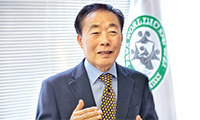
[한인단체 신년 인터뷰] 명원식 파바월드 회장… “한인 차세대 바르게 성장하는 토대 최선”
“한인 차세대들이 바르게 자랄 수 있는 토대를 만드는 것이 제가 파바월드의 회장으로 존재하는 유일한 이유입니다”한인사회의 대표적 청소년 봉사 …

LA한인회 멘토 프로그램 10일 스티브 강 위원장
LA 한인회(회장 로버트 안)가 한인사회 차세대 인재양성 노력의 하나로 ‘멘토를 만나다’ 프로그램을 정례화해 실시하고 있는 가운데 그 세 번째…
미주 한인의 날 기념… 잇달아 ‘코리안 나잇’
미주 한인들의 역사와 성취, 그리고 미국 사회에 기여해 온 발자취를 기리는 1월13일 ‘미주 한인의 날’을 맞아 LA의 주요 프로 스포츠 구단…
‘K-팝의 미래’ 세미나 16일 LA 문화원 개최
LA 한국문화원(원장 이해돈)은 세계한류학회(WAHS)와 함께 오는 1월16일(금) ‘케이팝 데몬 헌터스와 케이팝의 미래 세미나 및 라운드테이…
[한인단체 신년 인터뷰] LA 한인회 로버트 안 …
“더욱 적극적이고 실질적인 서비스로 한인들의 어려움을 돕고, 한인사회 발전에 앞장서겠습니다.”2026년 병오년 새해를 맞아 LA 한인회 로버트…
많이 본 기사
- 다우, 첫 49,000 돌파 증시 연초 랠리 지속
- 일자리 위협하는 AI, 전문직도 대체한다… 컴퓨터 전공·로스쿨 졸업생들도 ‘취업난’ 극심
- ‘비자 보증금’ 대상 확대… 최대 1만5천달러 내야
- ‘불륜 논란’ 숙행, 15일 상간녀 ‘위자료 1억’ 소송 선고
- 연방대법 9일 중대 판결 “상호관세 결정 가능성”
- 손담비, 시동생 성폭행 ‘악플 소송’ 냈다.. “50만원 배상하라”
- 첨단기술 ‘CES 2026’ 개막… 행사장에 몰린 구름 관람객
- [신년 집중기획/ 한인 정치력 신장 원년으로] 중간선거의 해… “투표 통해 한인 공직자 늘려야”
- ‘전혜진 남편’ 故 이선균 묘비에 새긴 절절 고백.. ‘사랑해’
- 17년 만에 지상파 3사 다 뚫었다..김준수, SBS ‘미우새’ 출격
- 경찰, 박나래·키 ‘주사 이모’ 압수수색..수사 본격화
- 맘다니, “마두로 체포는 국제법 위반” 석방 촉구
- 케네디에 관한 네 개의 이야기
- 마두로 사태 ‘중남미 최정예’ 쿠바 굴욕
- [미국은 지금] 2026년 ‘손님’ 의식 버리고 ‘주인’ 입장을
- 한인타운 노래방 협회 발족한다
- 노키아의 ‘피벗 DNA’… 몰락했던 휴대폰 거인, 엔비디아 손잡고 부활 신호탄 쏜다
- 40명 사망 스위스 술집, 6년간 소방점검 없었다
- 공영방송공사 결국 해산 트럼프 예산중단에 백기
- [마크 A. 시쎈 칼럼] 트럼프의 20가지 업적
- “유튜버 될 수 있어요” 무료 특강
- 한인, 주 재무차관에… 버지니아 제임스 허씨
- LAX 진입로 혼잡 극심 이번주 시설철거 공사
- 프렌치 셰프가 만드는 돼지국밥… 익숙한데 새롭고, 낯선데 세련됐다
- ‘윌셔·버몬트’ 메트로역 폭발물 의심물체 소동
- [수요 에세이] 이젠 끝이다 “Nevermore, Nevermore”
- 미국서 비만 치료제 시장 전쟁 ‘본격’
- [LA 대형산불 1주년] “회복은 진행중”… 피해자 현실 예술 승화
- “2026년도 힘찬 활동”… LA 평통 시무식
- [만화경] ‘가짜 일’ 줄이기
- 포드·GM 신차판매↑ 현대차·도요타 선전
- “베네수 석유생산 증대”
- 머스크의 AI ‘그록’ , 아동 성적 이미지 양산 비판 쇄도
- 레이건 前대통령 장남 마이클 레이건 별세… “부친 유산지킨 수호자”
- 대형마트 판매, 13년전 ‘강제휴무’ 이후 최대 낙폭
- 미, AI 데이터센터 반대 확산
- 미국서 ‘비트코인 ATM’ 피싱 매년 급증
- 벼랑 끝에서 살아난 안세영 새해 첫 대회 1회전 진땀승
- 전자제품 환경 규제 강화된다
- 홈플러스 41개 매장 폐점 제시… 노조 반발 넘을까
- 연방정부, 원자력 부흥에 ‘박차’
- [CES 2026 라스베가스서 개막] 인공지능 두뇌 장착 로봇… 완전체 자율주행차도
- “정후, 금 밟았어!” 비석치기에 진심이었던 MLB 사나이들
- 캘리포니아, 이혼 수수료 저렴해진다
- [경제단체장 신년 인터뷰] 옥타LA 김창주 회장 “한미 경제발전·한인경제 활성화 역점”
- “OECD 글로벌 최저세, 미 기업엔 면제”
- “한인 고교생 사랑의 선물”
- 한국 셀트리온, 미국 생산시설 개소
- 올해 VA 페어팩스 집값… “싱글홈 웃고 콘도는 글쎄”
- 올해 금리 1%P 내려야 마이런 연준이사 주장
1/5지식톡

-
 미 육군 사관학교 West Poin…
0
미 육군 사관학교 West Poin…
0https://youtu.be/SxD8cEhNV6Q연락처:wpkapca@gmail.comJohn Choi: 714-716-6414West Point 합격증을 받으셨나요?미 육군사관학교 West Point 학부모 모…
-
 ☝️해외에서도 가능한 한국어 선생님…
0
☝️해외에서도 가능한 한국어 선생님…
0이 영상 하나면 충분합니다!♥️상담신청문의♥️☝️ 문의 폭주로 '선착순 상담'만 진행합니다.☎️ : 02-6213-9094✨카카오톡ID : @GOODEDU77 (@골뱅이 꼭 붙여주셔야합니다…
-
 테슬라 자동차 시트커버 장착
0
테슬라 자동차 시트커버 장착
0테슬라 시트커버, 사놓고 아직 못 씌우셨죠?장착이 생각보다 쉽지 않습니다.20년 경력 전문가에게 맡기세요 — 깔끔하고 딱 맞게 장착해드립니다!장착비용:앞좌석: $40뒷좌석: $60앞·뒷좌석 …
-
 식당용 부탄가스
0
식당용 부탄가스
0식당용 부탄가스 홀세일 합니다 로스앤젤레스 다운타운 픽업 가능 안녕 하세요?강아지 & 고양이 모든 애완동물 / 반려동물 식품 & 모든 애완동물/반려동물 관련 제품들 전문적으로 홀세일/취급하는 회사 입니다 100% …
-
 ACSL 국제 컴퓨터 과학 대회, …
0
ACSL 국제 컴퓨터 과학 대회, …
0웹사이트 : www.eduspot.co.kr 카카오톡 상담하기 : https://pf.kakao.com/_BEQWxb블로그 : https://blog.naver.com/eduspotmain안녕하세요, 에듀스팟입니다…
케이타운 1번가
오피니언
 정숙희 논설위원
정숙희 논설위원케네디에 관한 네 개의 이야기
 마크 A. 시쎈 / 워싱턴포스트 칼럼니스트
마크 A. 시쎈 / 워싱턴포스트 칼럼니스트 [마크 A. 시쎈 칼럼] 트럼프의 20가지 업적
 김동찬 시민참여센터 대표
김동찬 시민참여센터 대표 [미국은 지금] 2026년 ‘손님’ 의식 버리고 ‘주인’ 입장을
 이현숙 수필문학가협회 이사장
이현숙 수필문학가협회 이사장 [수요 에세이] 이젠 끝이다 “Nevermore, Nevermore”
 최형욱 / 서울경제 논설위원
최형욱 / 서울경제 논설위원 [만화경] ‘가짜 일’ 줄이기
 민경훈 논설위원
민경훈 논설위원도널드 W 부시와 이라크 전의 추억
 황의경 사회부 기자
황의경 사회부 기자 타국에서, 다시 ‘우리’를 생각하다
 박원곤 이화여대 북한학과 교수
박원곤 이화여대 북한학과 교수 [백상논단] 붉은 말의 해, 한반도에 다시 오는 분기점
 홍용희 수필가
홍용희 수필가 [화요칼럼] 내 안의 바위
1/3지사별 뉴스

맨하탄 연방법원에 출두한 마두로 대통령 “나는 납치됐다”
미군에 의해 체포돼 부인과 함께 미국으로 압송된 니콜라스 마두로 베네수엘라 대통령이 5일 맨하탄 연방법원에 처음 출두해 모든 범죄 혐의를 부인…
이민단속에 안면인식 앱까지 동원

“헌법 무시”Vs“안보 강화”
미국이 3일 나콜라스 마두로 베네수엘라 대통령을 군사 작전으로 체포한 사건과 관련해, 워싱턴 지역 정치권은 상반된 반응을 보이고 있다. 정치인…
DC 보안 강화, 마두로 체포로 인해 ‘초비상’

‘안면 인식’으로 불체자 확인·체포한다
트럼프 행정부의 초강경 이민 단속 기조 속에 불법체류자 단속을 위해 안면 인식 기술이 본격적으로 활용되고 있어 논란이 커지고 있다. 4일 월스…
중부 캘리포니아 ‘한인 이민사’ 나왔다

오늘 하루 이 창 열지 않음 닫기 




























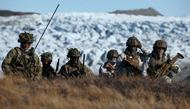


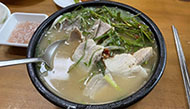


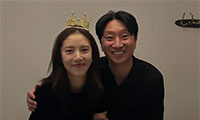
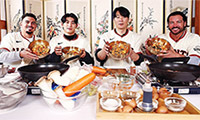














.png)


댓글 안에 당신의 성숙함도 담아 주세요.
'오늘의 한마디'는 기사에 대하여 자신의 생각을 말하고 남의 생각을 들으며 서로 다양한 의견을 나누는 공간입니다. 그러나 간혹 불건전한 내용을 올리시는 분들이 계셔서 건전한 인터넷문화 정착을 위해 아래와 같은 운영원칙을 적용합니다.
자체 모니터링을 통해 아래에 해당하는 내용이 포함된 댓글이 발견되면 예고없이 삭제 조치를 하겠습니다.
불건전한 댓글을 올리거나, 이름에 비속어 및 상대방의 불쾌감을 주는 단어를 사용, 유명인 또는 특정 일반인을 사칭하는 경우 이용에 대한 차단 제재를 받을 수 있습니다. 차단될 경우, 일주일간 댓글을 달수 없게 됩니다.
명예훼손, 개인정보 유출, 욕설 등 법률에 위반되는 댓글은 관계 법령에 의거 민형사상 처벌을 받을 수 있으니 이용에 주의를 부탁드립니다.
Close
x